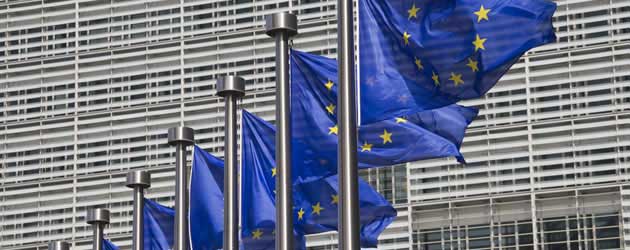
The Pound to Euro (GBP/EUR) exchange rate is forecast to remain trading in the region of 1.25 and could even slide beneath that level on Monday as last weeks Bank of England (BoE) Inflation report and soft economic data continues to weigh.
Last week The Pound to Euro (GBP/EUR) exchange rate continued to weaken on Friday as data showed that the Eurozone economy expanded more than forecast in the third quarter.
Earlier in the session, data bolstered the single currency and allowed Europe to breathe a sigh of relief as Germany avoided sliding into a triple-dip recession by positing growth of 0.1%. France also surprised to the upside as its economy expanded by 0.3%, the highest rise recorded since the second quarter of 2013.
‘The German number is slightly positive in line with expectations but it’s still soft. The French growth in Q3 is only driven by inventories. It’s just a one-off positive figure in a very weak environment and therefore this is not something which could lead the market to think that the economic situation is improving in France,’ said Patrick Jacq, a strategist from BNP Paribas.
More news that is positive came from Portugal, which saw economic growth of 0.2% and finally Greece emerged from recession after six years of misery. According to Eurostat, Greek GDP rose by 0.7% in the third quarter of the year. Since its troubles began, back in 2008 a fifth of the Greek economy has been lost. On a yearly basis the Greek economy expanded by 1.7% raising hopes that finally, the Greek recovery has begun.
There was bad news for Italy however as data showed that the country remains in recession as the nation’s economy failed to grow for a 13th consecutive month in a row.
The wider Eurozone economy expanded by 0.2% last quarter a figure that was slightly better than 0.1% increase forecast by analysts. On a year on year basis the Eurozone economy expanded by 0.8%, unchanged from the preceding figure.
Inflation data was also released, and confirmed that across the Eurozone inflation remained mired at just 0.4% on a yearly basis. Month on month, inflation was unchanged.
Against other currencies the Euro saw little movement as economists were not convinced that the Eurozone GDP data was enough to ease concerns over the strength of the European economy.
As well as disappointing UK construction output data weighing the Pound was also under pressure from investors fearing that deflation in the Eurozone will negatively effect the UK economy and cause the Bank of England to delay hiking interest rates.
‘Policymakers are deluding themselves if they believe that narrowly avoiding recession is the same as being on the road to recovery. The eurozone today is starting to look worryingly like Japan in the 1990s: little growth, crippled banks, export dependent. All it lacks to make the comparison complete is deflation, and one further negative shock would make that a reality too. It’s clear what the Eurozone needs. It needs monetary activism from the ECB. It needs fiscal activism, both from individual countries and from pan-European institutions such as the European Investment Bank. It needs Germany to realise that generalised belt-tightening has been self-defeating. And it needs all those things fast,’ said an economist.
The Euro is advancing towards a one month high against the Pound.
Euro Exchange Rates
[table width=”100%” colwidth=”50|50|50|50|50″ colalign=”left|left|left|left|left”]
Currency, ,Currency,Rate ,
Euro, ,US Dollar,1.2491 ,
,US Dollar,1.2491 ,
Euro, , Pound Sterling,0.7992 ,
, Pound Sterling,0.7992 ,
Euro, ,Australian Dollar,1.4311 ,
,Australian Dollar,1.4311 ,
Euro, ,Canadian Dollar,1.4133 ,
,Canadian Dollar,1.4133 ,
Pound Sterling, ,Euro,1.2512 ,
,Euro,1.2512 ,
US Dollar, ,Euro,0.8005 ,
,Euro,0.8005 ,
[/table]

